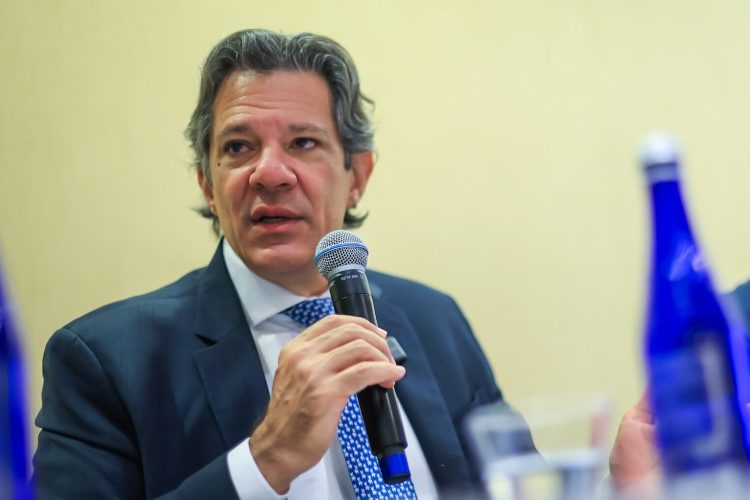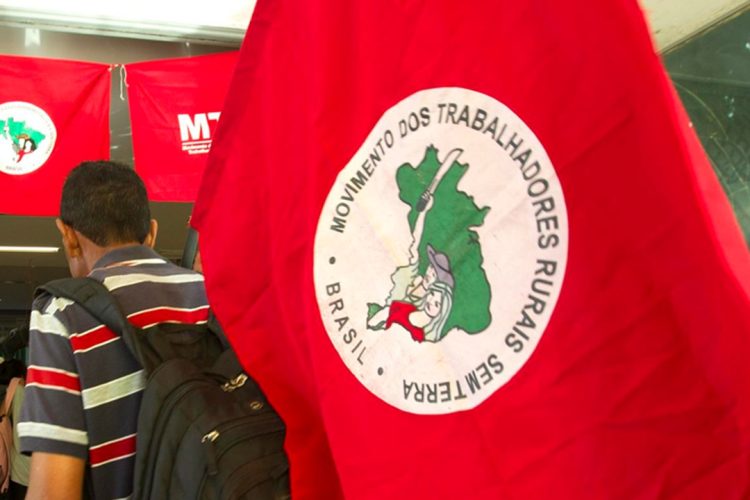
Ahead of the annual meeting of the Southern Baptist Convention in June, several Baptist leaders are once again drawing attention to failings of the convention’s policy and lobbying arm, the Ethics and Religious Liberty Commission. Last week former SBC President Jack Graham noted his support for defunding the ERLC, in response to a letter from 10 of his fellow former presidents endorsing the commission’s usefulness.
“I do not support the ERLC and believe the organization has been the single most divisive entity of the SBC since the days of [former ERLC President] Russell Moore,” Graham wrote.
Earlier this month, Albert Mohler, president of Southern Baptist Theological Seminary, expressed “grave doubts about the utility of the ERLC,” though he stopped short of calling for its absolution.
For the past three annual conferences, the ERLC has been the target of motions to abolish or defund it. While none have passed, last year’s resolution to abolish the commission garnered significant support — as high as roughly 40 percent, according to journalist Megan Basham. A task force established by the SBC Executive Committee to evaluate the ERLC’s effectiveness found in 2021 that it was “a source of significant distraction from the Great Commission work of Southern Baptists.”
Criticisms of the ERLC mostly fall into two categories: allegations that the commission is useless and ineffective on the right political issues, and that it actively devotes resources to the wrong ones.
‘Worse Than Useless’
The ERLC’s 2025 policy platform emphasizes the protection of unborn life, religious liberties, the institutions of marriage and family, and human dignity. Those goals — and many of the policy prescriptions the ERLC attaches to them, such as defunding Planned Parenthood and outlawing harmful transgender surgeries for minors — are commendable and unobjectionable. So is the ERLC’s stated mission, which purports “to assist your churches by helping you understand the moral demands of the gospel, apply Christian principles to moral and social problems and questions of public policy, and to promote religious liberty.”
But the ERLC has been repeatedly accused of doing little to move the needle on those major culture war issues. Its critics say the commission puts its name on letters and takes credit for culture war victories but has been largely absent from the real work of change-making in Washington.
“They’ve been completely absent on the big fights over big issues,” Sen. Mike Lee told Basham earlier this year. As Basham noted, Lee has been at the forefront of several legislative battles over the issues the ERLC purports to focus on.
Rachel Bovard, a Federalist contributor and Hill veteran, told Basham a similar story. “In 12 years on the Hill I don’t ever remember hearing from the ERLC,” she said.
“They really are not viewed as being actively helpful on advancing conservative politics on the Hill,” added Mike Whitehead, the ERLC’s former general counsel.
Eric Teetsel, CEO of the Center for Renewing America, put it more bluntly when speaking with Basham, calling the ERLC “worse than useless” and “actively counterproductive.”
In response to these critiques, ERLC President Brent Leatherwood told The Federalist the commission “takes seriously the direction given to us by the churches of the Southern Baptist Convention” in “every issue we engage.”
“By operating in such a manner that honors our churches, we are able to build bridges with our nation’s leaders and share the Good News of Christ’s life, death, and resurrection, while helping lawmakers understand what Scripture has to say about their work,” he said.
Controversial Advocacy on Gun Control and Immigration
In tandem with critiques of its effectiveness on critical issues, the ERLC has also drawn ire for dabbling in political controversies that some Southern Baptists view as a betrayal of its mission to represent them.
In 2023, after a shooter who identified as transgender and documented her anti-Christian sentiments killed six people at a private Christian school outside of Nashville, Tennessee, Gov. Bill Lee used the tragedy to push for gun control legislation that would have enabled the state to take firearms away from citizens without ever convicting them of a crime. As David Harsanyi explained in these pages at the time, the bill would have forced “people accused of a precrime to sit down with state-appointed psychiatrists and lawyers and prove their innocence before the government decides if they can keep their guns.”
The ERLC could have focused its efforts on calling out the mental ills of transgenderism or the anti-Christian motives of the shooter. Instead, the commission, which is entrusted with representing the 12.7 million members of SBC churches, threw its weight behind Lee’s bill, publishing a minute-long video and detailed written explainer in support of it. Leatherwood wrote a three-page letter to state legislators on ERLC letterhead, urging them to vote for the legislation.
How did endorsing a gun control measure that sidesteps due process further the ERLC’s mission of promoting religious liberty and Christian ethics? Why was an organization supposedly dedicated to First Amendment liberties waging war against the Second? Many Southern Baptists whose tithes fund the ERLC felt betrayed by its political advocacy for a constitutionally problematic law.
At the same time, Leatherwood, whose children attended the Covenant School and who was representing parents of the victims, fought to keep the shooter’s manifesto detailing her anti-Christian and anti-white motives under wraps.
The ERLC has also earned criticism for its ties to leftist groups in the course of its advocacy for immigration reform. In 2012, the ERLC was involved in the formation of the Evangelical Immigration Table, which describes itself as “a national movement of Christians committed to learning more about what the Bible says about ‘welcoming the stranger,’ and living out these biblical principles.”
“From the outset, the group focused not on encouraging Christians to meet the material and spiritual needs of immigrants in their own communities, something few would object to, but on pushing them to lobby lawmakers for specific legislation,” Basham reported in her bestselling book, Shepherds for Sale. In 2013, the EIT rallied behind an immigration bill pushed by a group of senators who became known as the “Gang of Eight.” The bill would have “granted amnesty to some 11 million illegal immigrants,” as a Heritage Foundation report pointed out at the time.
Today, the EIT condemns mass deportation of illegal aliens and advocates for granting “a pathway to Legal Permanent Residency” to eligible illegal border-crossers who pay a fine and admit to breaking the law.
[READ NEXT: Astroturfing On Immigration: How Evangelical Leaders Betrayed The Believers They Claim To Represent]
But the questionable nature of the EIT’s advocacy doesn’t end there. As Basham has reported extensively, the EIT has ties to the National Immigration Forum, a leftist-aligned 501(c)(3) that has been funded by left-wing billionaire George Soros’ Open Society Foundations. The Soros group bragged in a 2015 board document that “In the course of our work, we were able to generate engagement by … some conservative voices, such as evangelical Christians and Southern Baptists through grantee National Immigration Forum.” The EIT is, according to Basham, little more than a “front group” for the Soros-funded NIF. And yet the ERLC was a founding member of the EIT and is still listed among its leadership organizations.
Asked whether the ERLC still stands behind its support for Lee’s red-flag law and whether it plans to distance itself from the EIT, Leatherwood told The Federalist: “While some may disagree with [SBC] resolutions or work to subvert them, we, as an entity that serves our churches, have no such luxury,” adding that the ERLC’s work “is rooted in Scripture, reflective of the Baptist Faith and Message, and responsive to the will of our messengers.”
The Southern Baptist Convention passed a resolution in 2018 condemning gun violence and calling on government officials “to implement preventative measures that would reduce gun violence and mass shootings,” but it also entreated legislators to do so “in accordance with the Second Amendment” and did not endorse specific legislative policies. In 2011, a resolution was passed urging legislators to secure the border and implement “a just and compassionate path to legal status, with appropriate restitutionary measures, for those undocumented immigrants already living in our country,” a sentiment which was revived in a 2018 resolution. Neither one mentioned the Evangelical Immigration Table or how “appropriate restitutionary measures” should be defined.
Damage Control
In addition to its advocacy relating to gun control and immigration, the ERLC made the controversial decisions in 2016 to support a legal effort to build a mosque in New Jersey, and in 2024 to use its platform to urge Congress to continue spending U.S. taxpayers’ dollars to fund war in Ukraine.
In March, Ohio Pastor John Michael LaRue called out the ERLC for failing to speak boldly against the Marxist rhetoric of critical race theory. Despite that omission, the commission has produced a plethora of articles about race on its website (including one in June 2020 in which the author said “George Floyd’s blood speaks to me”).
Further complicating the ERLC’s image is the behavior of Russell Moore, who led the ERLC as its president from 2013 to 2021. Moore now serves as the editor-in-chief of Christianity Today, where he said nothing when the publication published a story right before Easter questioning the biblical narrative that Jesus was crucified with nails.
Moore was also strangely silent after the U.S. Supreme Court’s decision to overturn its unconstitutional Roe v. Wade ruling, a huge victory for the pro-life movement. The victory was due in large part to President Donald Trump’s appointment of three justices who all sided with the majority, and observers who noticed Moore’s silence wondered if his hesitation to celebrate the decision was due to his disdain for Trump. When pressed on the Dobbs victory a month later, Moore’s decision to criticize Trump (and by extension, his voters) failed to prove his critics wrong. Since exiting his post at the ERLC, Moore has made a name for himself criticizing Trump and Christians who support him.
Since last year’s effort to disband the ERLC demonstrated many Southern Baptists’ loss of confidence, the commission has made a noticeable effort to appear effective, which has included a recent bout of photographed meetings with members of Congress. When Sen. Katie Britt posted photos of herself meeting with ERLC leaders earlier this month, her replies were filled with comments concerned that she was lending credibility to an organization that had lost it in the eyes of many of its constituents.
The fact that the brief meeting was perceived by many as reflecting negatively on Sen. Britt indicates just how much damage has been done to the ERLC’s reputation. The commission’s recent visibility blitz indicates that its leaders are painfully aware of it.
Elle Purnell is the assignment editor at The Federalist. She has appeared on Fox Business and Newsmax, and her work has been featured by RealClearPolitics, the Tampa Bay Times, and the Independent Women’s Forum. She received her B.A. in government with a minor in journalism. Follow her on Twitter @_ellepurnell.


